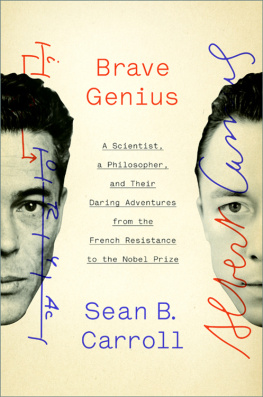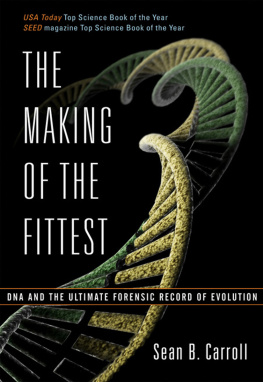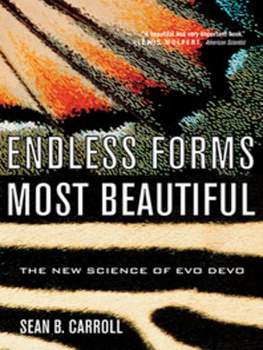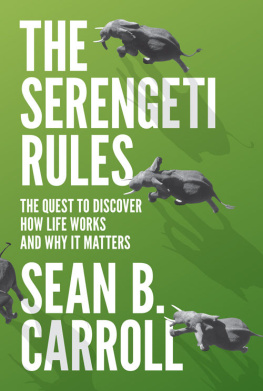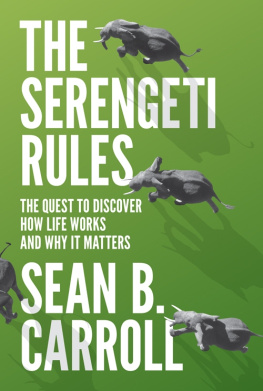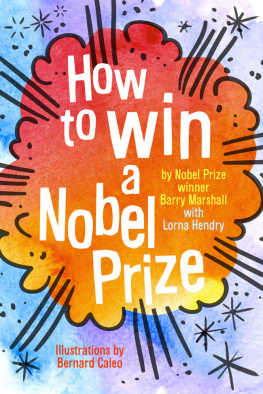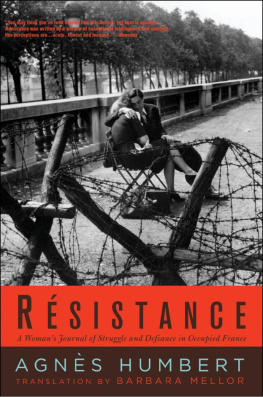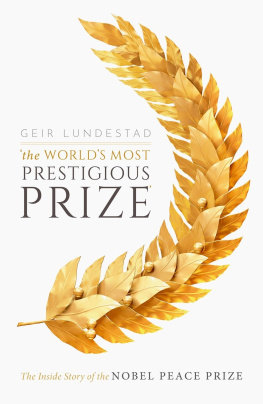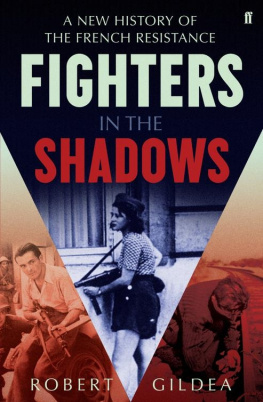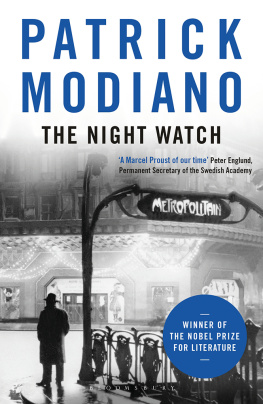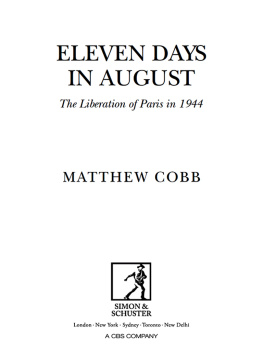A CKNOWLEDGMENTS
H OW DOES A middle-aged American biologist wind up writing a story about world-turning events and remarkable people in France more than seventy years ago?
That is a bit of a long story, although I promise not nearly as long as the book!
In explaining how he selected topics for books, the great biographer David McCullough admitted, I sometimes get the feeling that the subject picks me. I recognize that feeling here. My preparation for the book was a matter of chance. Writing it eventually became one of necessity.
The seeds were planted a very long time ago. In 1977, Simon Silver, my freshman adviser at Washington University in St. Louis, slid a book on the operon in front of me. I understood later that he was testing me, to see whether I was curious enough to do some extracurricular reading. I was. Simon later offered Zhores Medvedevs book on Lysenko to me, and told me about the treatment of dissident scientists in the Soviet Union.
At this same time, I had enrolled in a French class. The university required that, in order to receive Advanced Placement credit in a given subject, students had to pass the next, higher-level course in that subject. I signed up for one course, with no intention of taking any more Frenchever. Professor James Joness talent and charisma, however, changed my plans. I pursued (and almost completed) a second major in French that introduced me to many great thinkers from Diderot and Voltaire to, of course, Sartre and Camus. That endeavor also gave me some language skills that, even though badly rusted, later turned out to be very handy.
To complete the trifecta of my accidental preparation for this book, it also happens that I am a lifelong World War II history buff. I had read scores of books on the conflict and visited many key battlefields and museums without the slimmest notion of ever writing about the subject.
These ingredients simmered in the background for more than thirty years as I pursued my career as a biologist. I have admired Jacob and Monods scientific work since my graduate school days, and my own research on the genetic control of animal development and evolution has in some ways followed in their footsteps. But when I read brief mentions that Monod was in the Resistance and that he was friends with Albert Camus, or that Jacob was nearly killed in Normandy, I became curious to know what was left untold. How did their war experiences shape their future work and worldview? What did being in the Resistance entail? What was daily life like for Monod during the Occupation of France? Over many years, the questions expanded: What drew Monod and Camus together? How close was their friendship, and what did it mean to each man? What common ground did the writer-philosopher and the scientist find?
I had to know more.
Eventually, I was able to track down and meet some of the people who could tell me the answers, and so began one of the most exciting and gratifying adventures of my life. Indeed, I could not have told any of this story without the generous assistance and, most important, the trust of several extraordinary individuals who appear in it. In particular, I am indebted to Agnes Ullmann for sharing the story of her daring escape from Hungary, and for putting me in touch with many people connected to Monod and Jacob; to Genevive Noufflard for permitting me to relate stories from her unpublished memoir of the war years, and for sharing numerous original documents from the Resistance; and to Olivier and Philippe Monod for giving me access to troves of private family letters, documents, and photos, for helping me understand their significance, and for sharing the story of their remarkable father and family. It has been a great privilege to meet such extraordinary people, and an honor to be welcomed into their homes.
Many others in France have also provided vital assistance. The exceptional dedication and efforts of the late Madeleine Brunerie, Monods longtime secretary, has preserved decades of invaluable documents at the Archives of the Institute Pasteur. There, I benefited enormously from the generous assistance of Dominique Dupenne and Daniel Demellier of the Service des Archives de LInstitut Pasteur, who went far out of their way to accommodate me during my visits and to help locate large numbers of critical dossiers.
I also thank Marcelle Mahasela of the Fonds Albert Camus, Bibliotheque Mjanes, Aix-en-Provence, for her assistance in obtaining materials, and Catherine Camus for her permission to quote several original letters and numerous passages of her fathers writings.
Special thanks to Isabelle Tarisca of the Cabinet du Prfet of the Prfecture de Police in Paris for her assistance in locating police files related to the Nordmann case, as well as Jacques Monods participation in the Resistance in 1940. I also thank Liora Israel and Julien Blanc for correspondence relating to the existence of these files. Thanks also to Severine Marchal and the staff of Le Centre de Documentation et de Recherche du Memorial du Marchal LeclercMuse Jean Moulin in Paris for generous access to their collections.
Many individuals generously agreed to be interviewed for the book or responded to written queries. Many thanks to the late Tams Erds, Madeleine Brunerie, Franoise Benhamou, Yves-Marc Achenbaum, Melvin Cohn, Georges Cohen, Donald Brown, David Hogness, Stuart Edelstein, and Arthur Pardee for their generosity.
I also had the benefit of interviews conducted long ago. I thank Olivia and Nicholas Judson for graciously granting access to transcripts of interviews produced by their late father, Horace Freeland Judson, in the course of his writing The Eighth Day of Creation, the definitive history of the early history of molecular biology. I thank Charles Greifenstein, associate librarian and curator of manuscripts at the American Philosophical Society in Philadelphia, for providing the files.
Closer to home, I am deeply indebted to several individuals who provided crucial assistance to the project. Dr. Hlose Dufour, a member of my laboratory at the University of Wisconsin, was a guide, translator, interpreter, and researcher throughout the development of the book. Her assistance in navigating Paris and its institutions, conducting or assisting with interviews and meetings, initiating correspondence, unearthing information in various archives, and deciphering key documents has been immeasurable. Her knowledge of French history, culture, and customs helped to open doors to many rewards.
Dr. Benjamin Prudhomme, a former member of my laboratory, catalyzed the launch of this project by locating Genevive Noufflard and conducted a pivotal initial interview with Mme. Noufflard.
Throughout the preparation of the book, I have been assisted by Megan Marsh-McGlone, who tracked down countless books and articles, shouldered the Herculean task of curating the bibliography and sources in the book, as well as securing permissions for illustrations and the quoting of copyrighted material. And thanks to Leanne Olds for preparing the illustrations.
I have been very fortunate to have the attentive guidance and encouragement of my agent, Russ Galen, throughout the conception, development, and writing of the book. Special thanks to my editor at Crown, Domenica Alioto, for championing the book, and for her thoughtful input throughout the editing process. I am also especially grateful to Hlose Dufour, Megan Marsh-McGlone, Steve Paddock, and Jim Carroll, who provided detailed feedback on earlier drafts.
This book would not have been undertaken without the unwavering support, encouragement, and understanding of my wife, Jamie Carroll. Jamie not only put up with my ramblings but also read every word of the first draft of the book, identified the thickets and brambles, and made countless great suggestions. No amount of Parisian chocolate can express my love and gratitude.

